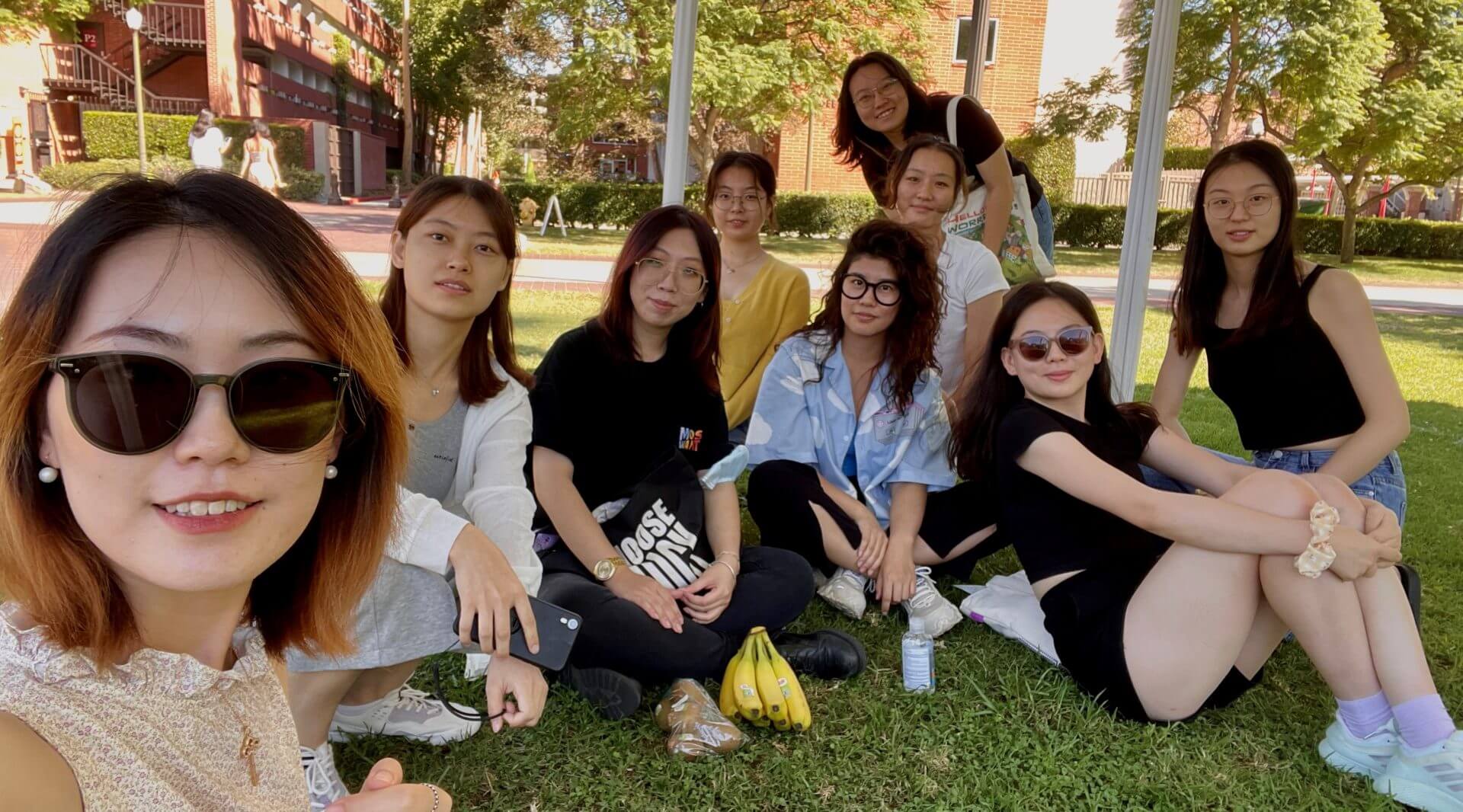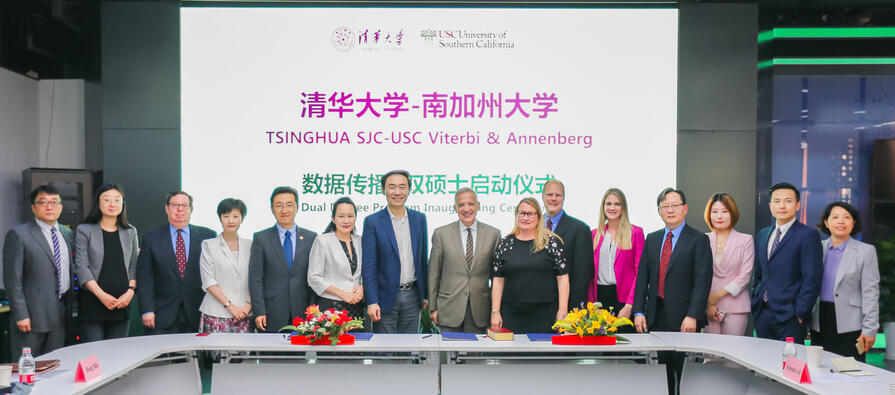USC VITERBI DEANS YANNIS YORTSOS AND ERIK JOHNSON SIGN AN AGREEMENT WITH TSINGHUA UNIVERSITY TO BEGIN A JOINT DUAL DEGREE PROGRAM. PHOTO CREDIT: TSINGHUA UNIVERSITY.
Originally published by USC Viterbi on October 19, 2021. Written by Nick Nuccio.
“Life in Los Angeles has been incredible, and I’m very grateful for this opportunity,” says Yiqian Dang, commenting on her recent arrival to California as part of a new USC master’s program. “The diversity here is something I have never experienced, and it is wonderful. My roommates are from all around the world — Qatar, India, America — and we cook together, study together, and talk about our different experiences.”
Dang is one of 10 students participating in the inaugural class of the Communication Data Science Dual Degree Program, a collaboration between the USC Viterbi School of Engineering, the USC Annenberg School for Communication and Journalism, and Tsinghua University School of Journalism and Communication in Beijing, China.
Students in the program study for one year at Tsinghua, then travel across the Pacific to finish their master’s degree in Los Angeles. Over the course of the program, they take courses in the communication and engineering departments of both schools.
USC’s own Communication Data Science program is relatively new, getting its start in 2016 with only five students. As it grew in popularity over the years — with a Fall 2021 class of around 60 students — the major attracted a lot of attention for teaching a unique combination of technical engineering skills and communication techniques. The program is one of a select few in the United States where non-engineering students can study data science.
“Communication and media organizations are looking for employees with a more technical foundation than communication practitioners traditionally have,” said Jessica Neff, the co-director of USC’s Master of Communication Data Science Program. “Our students are more marketable for those new and emerging roles.”
As the benefits of the program became apparent, interest in the program from abroad bloomed. In 2019, Yannis Yortsos, USC Viterbi School dean, signed a memorandum of understanding (MOU) with Tsinghua University, allowing interested students to split their classes between USC and Tsinghua. In Fall 2020, the official dual degree program was established, and thus the inaugural class will graduate with a degree from both universities in Spring 2022.
Graduates will receive both a Master of Science in Communication Data Science — a cross-disciplinary joint degree program offered by the USC Viterbi School of Engineering and the USC Annenberg School for Communication and Journalism — and a Master of Journalism and Communication from the Tsinghua University School of Journalism and Communication.

“Tsinghua and USC were two of my dream schools,” says Estrella Fang, one of the members of the 2022 class. “Tsinghua is one of the most prestigious schools in China, and USC is one of the most highly ranked schools in the United States. I’m really excited to take all of these courses.”
In addition to the program’s emphasis on combining traditional communication knowledge with technical ability, students gain the perspective of both countries’ wealth of knowledge and unique cultures. Many of the required courses at Tsinghua are taught in English, and the university offers supplemental language-strengthening courses, resulting in a robust class of bilingual scholars.
“This program is intended for students with a very strong focus on the international aspect of their communication and journalism,” said Erik Johnson, USC Viterbi Vice Dean of Academic Programs.
Students in the program have highlighted the chance to learn through two different cultural lenses as a highlight of the program, both in and outside of the classroom.
“The American learning style is very different than what I am used to,” says Dang, who completed her undergraduate degree at Shandong University in Jinan, China. “In the classes I’m taking, students are very encouraged to state our own individual views. I have learned a lot, and I think speaking up helps us understand each other’s differences and broaden our horizons.”
“The communication between these two very important countries is very meaningful,” she explains, alluding to the powerful positions of both the United States and China in the contemporary political climate.
“A lot of our issues can be fixed through better communication. The diversity that has been stressed not only in our courses, but in the USC school culture, reminds us that we need to acknowledge and honor each other’s differences in order to fully understand each other.”



